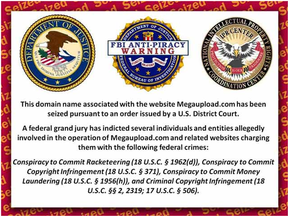
Amongst the demands that the US government has brought to the TPP negotiating table is a minimum requirement for copyright protection.
In fact, the USA has drafted the bloc's entire chapter on intellectual property. The stipulation reads almost identically to an existing American law - the Digital Millennium Copyright Act (DMCA).
American nationals are already familiar with the DMCA. It was notoriously used in 2007, when Viacom Inc tried unsuccessfully to shut down YouTube by serving a lawsuit under it. Defeated in the law courts, Viacom are set to appeal the judgement in the US Supreme Court.
The Act allows anyone to serve a 'take down and desist' notice, which would legally bind the host into removing alleged copyright infringing content from their web-pages.
It hasn't been a great success. Google announced that over half of the notices that it receives are from businesses trying to wipe out the competition. An appeal system is naturally in place, but even so, content can sometimes be off-line for weeks or months, before true ownership is established.
The provisions already established by American companies, in reaction to the DMCA, have led to shorter lived pranks. For example, an individual called ILCreation caused several music videos created by stars like Justin Bieber and Lady Gaga to be taken off-line, after he claimed copyright. In his case, the stunt was a protest against the distributing company Vevo.
However, the TPP proposals would build upon and go further than the DMCA, while exporting American law around the entire Pacific basin. Amongst the draft provisions are 'legal incentives' to criminalize any Internet Service Provider (ISP) or website owner, that doesn't fully co-operate with those investigating copyright infringement. It specifically states assistance must be given in locating on-line storage facilities. This would result in many more instances like the seizing of Megaupload.
ISPs would be legally bound to bar any repeat offenders from accessing the internet by blacklisting their Internet Protocol (IP) numbers.
The TPP would force member states to adjust their existing legislation to match that current in the USA. Intellectual property could be claimed for the owner's entire life, plus seventy years, which is a longer period than is defined by most other nations. In addition, restrictions or bans would have to be lifted on any item or product that is patented by another TPP country.
Canadian Law Professor Michael Geist viewed the trade agreement as being all that had to be taken out of ACTA. He continued, "In other words, the U.S. envisions using the TPP to export its copyright law to as many countries as possible while creating backdoor changes to its own domestic laws."


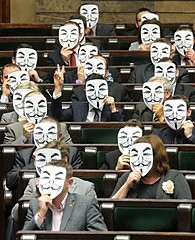
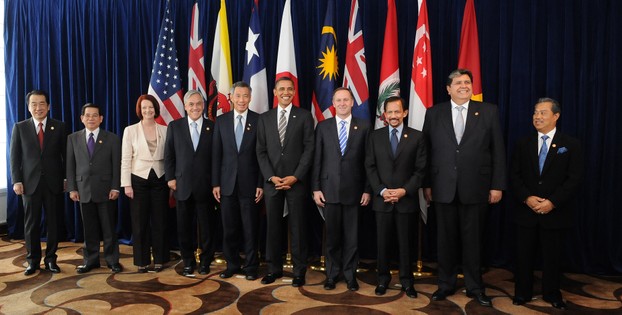
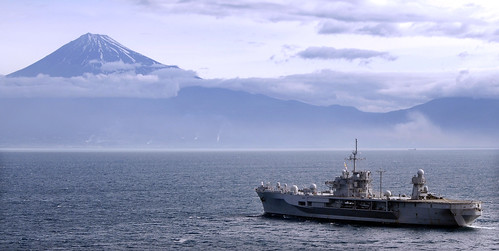 In essence, the Trans-Pacific Partnership (TPP) is an initiative to set up a free trade bloc. It already exists with its membership comprising of Brunei, Chile, New Zealand and Singapore. These countries no longer impose tax or other tariffs on exports and imports amongst themselves. But there is a bigger goal ahead.
In essence, the Trans-Pacific Partnership (TPP) is an initiative to set up a free trade bloc. It already exists with its membership comprising of Brunei, Chile, New Zealand and Singapore. These countries no longer impose tax or other tariffs on exports and imports amongst themselves. But there is a bigger goal ahead.








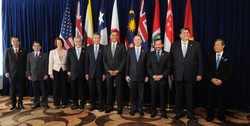

 St Tydecho's Churches in West Waleson 09/03/2014
St Tydecho's Churches in West Waleson 09/03/2014
 Goodies for an Outlander Premiere Partyon 03/06/2015
Goodies for an Outlander Premiere Partyon 03/06/2015
 Holocaust Memorial Day Interview with Rainer Höss, Grandson of Rudolf Architect of Auschwitzon 01/24/2015
Holocaust Memorial Day Interview with Rainer Höss, Grandson of Rudolf Architect of Auschwitzon 01/24/2015
 Romantic Valentine Gifts for an Outlander Fanon 01/16/2015
Romantic Valentine Gifts for an Outlander Fanon 01/16/2015

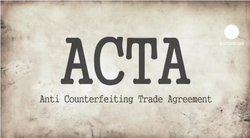
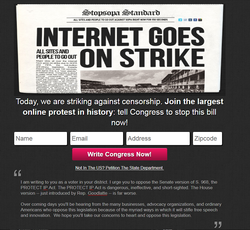
Comments
You've just encapsulated, in a nutshell, my thoughts on the matter. It's also the fact that these big corporations want to be the gatekeepers of creativity.
I hate to see when something like your hard work is taken from you by someone else. I can only imagine how frustrating it must be, like having anything else of value stolen. I think you should be able to challenge someone over it, which I know that you can, and have. I don't think the ways any of these bills are going about that is the right way to aiding that. It seems too much like giving up our power and rights. I don't like it.
I've read somewhere (but as a comment on a blog entry, not an official source) that the accusation wouldn't even be necessary with this one. Just someone spotting it would be enough.
So, for example, say you stole one of my articles and passed it off as your own. At the moment, I'd have to notice and challenge you over the copyright, before anything legal would happen. Under TPP, it could just be a random stranger seeing it, who could get it taken down. I wouldn't even have to know it had happened.
Like I said, that wasn't an official statement, but very little is so far.
One thing that is just so wrong is that all someone has to do is make an accusation for content to be taken offline. It doesn't work that way in any other legal matter, not in America at least, where one technically should be innocent until proven guilty. Why can't this work in the same way? Have proof a website has some kind of copy wright infringement, before they are punished for the act.
Irregardless, I'm against the bill, like I have been all of the rest.
(interestingly enough, I'm pretty sure irregardless isn't, or at least wasn't, an actual word, I think its supposed regardless. Ah, language.)